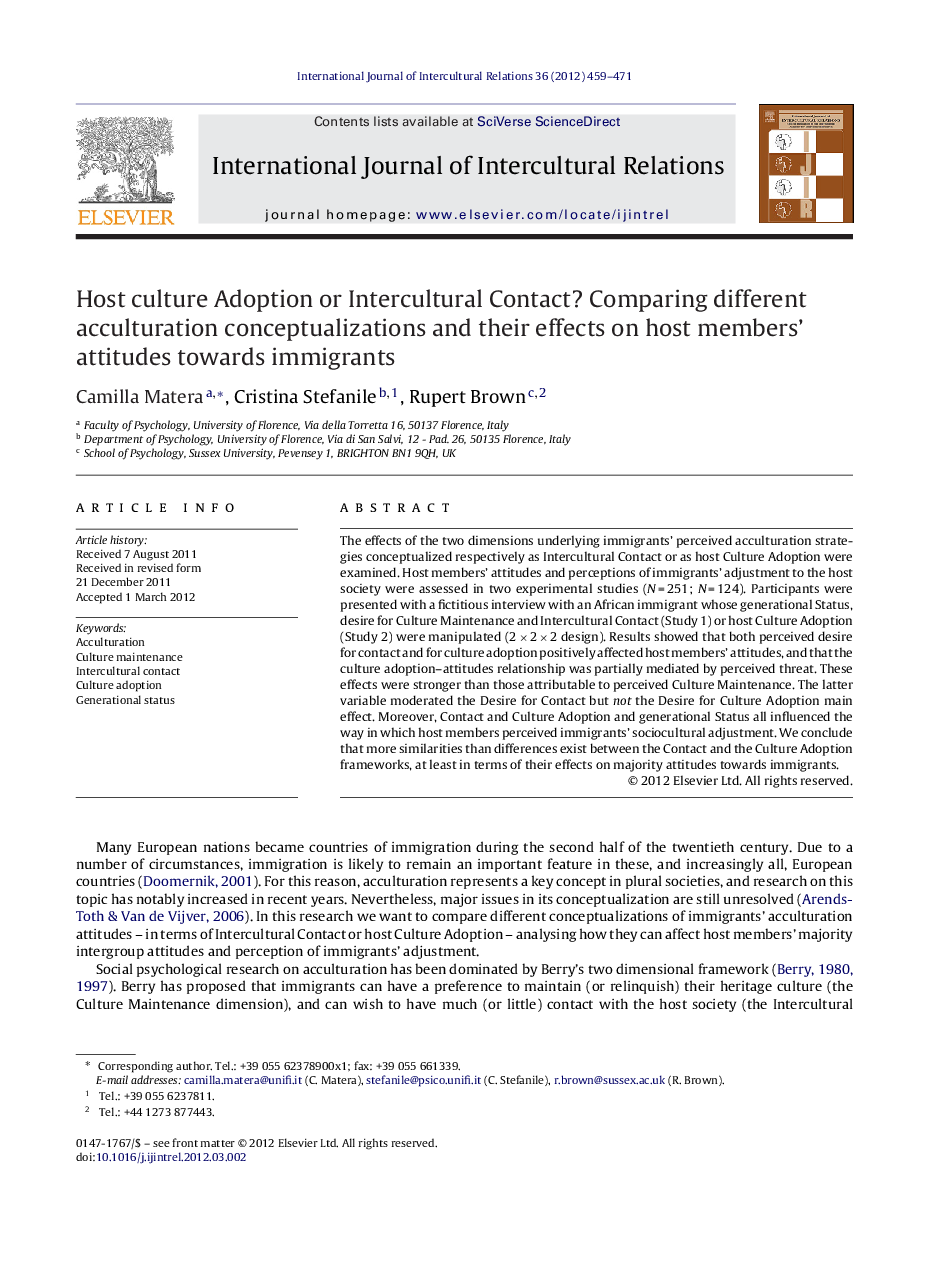| Article ID | Journal | Published Year | Pages | File Type |
|---|---|---|---|---|
| 947228 | International Journal of Intercultural Relations | 2012 | 13 Pages |
The effects of the two dimensions underlying immigrants’ perceived acculturation strategies conceptualized respectively as Intercultural Contact or as host Culture Adoption were examined. Host members’ attitudes and perceptions of immigrants’ adjustment to the host society were assessed in two experimental studies (N = 251; N = 124). Participants were presented with a fictitious interview with an African immigrant whose generational Status, desire for Culture Maintenance and Intercultural Contact (Study 1) or host Culture Adoption (Study 2) were manipulated (2 × 2 × 2 design). Results showed that both perceived desire for contact and for culture adoption positively affected host members’ attitudes, and that the culture adoption–attitudes relationship was partially mediated by perceived threat. These effects were stronger than those attributable to perceived Culture Maintenance. The latter variable moderated the Desire for Contact but not the Desire for Culture Adoption main effect. Moreover, Contact and Culture Adoption and generational Status all influenced the way in which host members perceived immigrants’ sociocultural adjustment. We conclude that more similarities than differences exist between the Contact and the Culture Adoption frameworks, at least in terms of their effects on majority attitudes towards immigrants.
► Different conceptualizations of immigrants’ acculturation strategies are compared. ► Immigrants’ generational Status and acculturation preferences are manipulated. ► Many similarities exist between the Contact and the host Culture Adoption frameworks. ► Only minor differences between the two conceptualizations emerge.
